33 Unspoken Reasons Why Couples Don’t Divorce Even When Love Is Gone
When the spark of romance dims in a marriage, it’s easy to assume that separation is inevitable. However, many couples choose to remain together despite the absence of romantic love.
This decision often stems from a complex interplay of emotional, financial, familial, and cultural factors. As someone who has navigated the labyrinth of long-term relationships, I understand the pull of these factors and the courage it takes to stay.
Here are 33 reasons couples opt to remain in their marriages, even when the love that once bound them appears to have faded.
1. Financial Security

Financial stability often tops the list of reasons why couples choose not to divorce. The cost of living alone can be daunting, especially if one partner has been out of the workforce for some time. Maintaining two separate households on the same income that once supported one can be financially crippling.
Moreover, dividing assets accumulated over years can lead to significant financial losses for both parties. The fear of financial insecurity and the potential economic hardship that a divorce could bring can compel couples to stay together.
I understand that these economic considerations weigh heavily on a couple’s decision to remain married, providing a practical rather than romantic basis for their continued union.
See also: 30 Reasons Divorce Can Be Even Harder To Handle Than An Unhappy Marriage
2. Fear of Starting Over

The idea of starting over can be incredibly intimidating. The prospect of re-entering the dating scene, building new relationships, and possibly facing rejection can be overwhelming. This fear often outweighs the dissatisfaction felt in a loveless marriage.
For many, the thought of navigating life alone after years of partnership is daunting. The emotional comfort that comes from familiarity can act as a powerful anchor, keeping couples together.
This fear of the unknown can feel paralyzing, making the known predictability of an unfulfilling marriage seem more appealing than venturing into a new chapter filled with uncertainty.
3. Stability for Children

The welfare of children is a significant consideration for many couples. Parents often prioritize their children’s emotional and psychological stability over their own happiness. The fear that a divorce might disrupt their children’s lives can lead couples to remain in marriages that no longer fulfill them personally.
Children’s routines, friendships, and schooling may be affected by the upheaval of a divorce, prompting parents to maintain a facade of unity. The shared commitment to parenting can serve as a strong bond, reinforcing the decision to stay together.
This decision often reflects a selfless dedication to the well-being of the next generation, even at the cost of personal fulfillment.
4. Cultural or Religious Beliefs
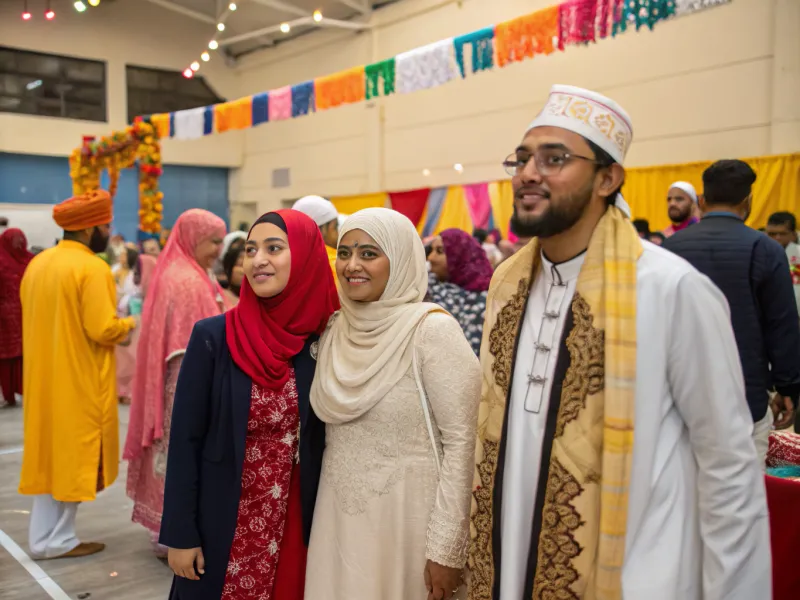
Cultural and religious beliefs exert a powerful influence on the decision to remain married. In many communities, divorce is viewed as a stigma or even prohibited, compelling couples to stay together despite a lack of love.
These deeply ingrained beliefs often emphasize the sanctity of marriage and the importance of upholding family honor. Additionally, the pressure to conform to societal norms can be overwhelming, particularly in tight-knit communities.
I recognize how these beliefs can add layers of obligation and duty, making the decision to stay more about communal expectations than personal happiness.
5. Deep Friendship

Even when romantic love fades, a deep friendship can sustain a marriage. Many couples find solace in the companionship and shared history that comes from years together.
The emotional intimacy and trust built over time can create a bond that transcends romantic love. This friendship can provide a sense of belonging and understanding that is hard to find elsewhere.
For some, this enduring friendship becomes the foundation of their relationship, offering comfort and support even in the absence of passion.
6. Concern Over Others’ Opinions
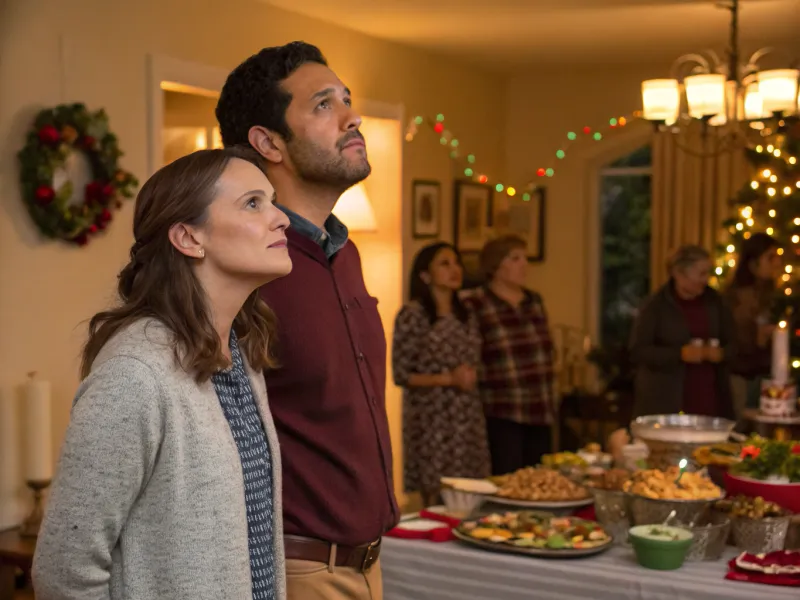
The fear of judgment from family, friends, or the community can be a powerful deterrent against divorce. Many couples remain together to avoid the stigma and gossip that often accompany a separation.
The desire to uphold an image of stability and success can lead partners to stay in marriages that have lost their romantic spark. The social ramifications of divorce are a real concern, especially in tight-knit communities where everyone knows each other’s business.
This pressure to conform to societal expectations can make the idea of divorce feel like a failure, prompting couples to maintain the appearance of a happy marriage.
7. Health Issues

Health concerns can significantly influence a couple’s decision to stay together. When one partner is dealing with a chronic illness or disability, the other often becomes the primary caregiver.
The bond formed through caregiving can bring couples closer, even when romantic love has faded. There’s a sense of duty and compassion that motivates partners to support each other through health challenges.
This shared journey through illness can forge a deep connection, making the decision to stay together feel like a natural extension of their commitment to care for each other.
8. Emotional Exhaustion

The emotional toll of ending a marriage can be exhausting, leading some to stay in an unfulfilling relationship. The energy required to initiate and navigate a divorce can seem insurmountable.
Many feel trapped by the thought of starting anew, leading to a sense of resignation. The familiarity of the current situation, though unsatisfying, can feel more manageable than the upheaval of a divorce.
This emotional fatigue acts as a barrier, preventing couples from taking steps towards separation, even when love has faded.
9. Shared Goals and Dreams

Common aspirations, such as retirement plans or shared projects, can keep couples together. These shared goals create a sense of purpose and partnership, even when romantic love has waned.
Working towards a common future can provide a strong incentive to maintain the marriage. The satisfaction of achieving dreams together can outweigh the absence of romantic love.
This shared vision for the future often sustains the relationship, offering hope and motivation to stay the course, even in the absence of personal fulfillment.
10. Fear of Loneliness

The fear of loneliness can be a compelling reason to stay in a marriage that lacks romantic love. The companionship and shared history with a partner offer comfort that may seem impossible to replace.
Being alone can feel daunting, especially for those who have been part of a couple for many years. The thought of facing life without a constant companion can be overwhelming.
This fear of isolation can drive individuals to remain in marriages that no longer provide emotional fulfillment, valuing companionship over romantic love.
11. Legal Complications

The legal intricacies of divorce can be a significant deterrent for many couples. The process often involves lengthy negotiations, division of assets, and custody arrangements, which can be both time-consuming and costly.
These legal hurdles can complicate the decision to separate, making it seem easier to stay in the marriage. The stress of legal battles can make the idea of divorce feel overwhelming.
For some, the prospect of navigating these complexities is enough to keep them in a marriage, even when love has faded.
12. Shared Responsibilities

The practical aspects of shared responsibilities can encourage couples to remain together. Managing a household, raising children, or caring for aging parents often requires teamwork and cooperation.
These shared duties can create a sense of partnership and accountability, even when romantic love is absent. The efficient division of labor within the marriage can make life more manageable.
This collaboration on daily tasks fosters a sense of unity, making the marriage feel worthwhile even without the presence of romantic love.
13. Hope for Reconciliation

Hope can be a powerful motivator to stay in a marriage. Many couples hold on to the belief that they can rekindle the love that has been lost.
Efforts to reconnect, such as attending counseling or making lifestyle changes, reflect a desire to improve the relationship. This hope for a better future can sustain a couple through challenging times.
I understand that this optimism can keep partners together, providing a glimmer of possibility that love can be revived.
14. Memories and Shared History
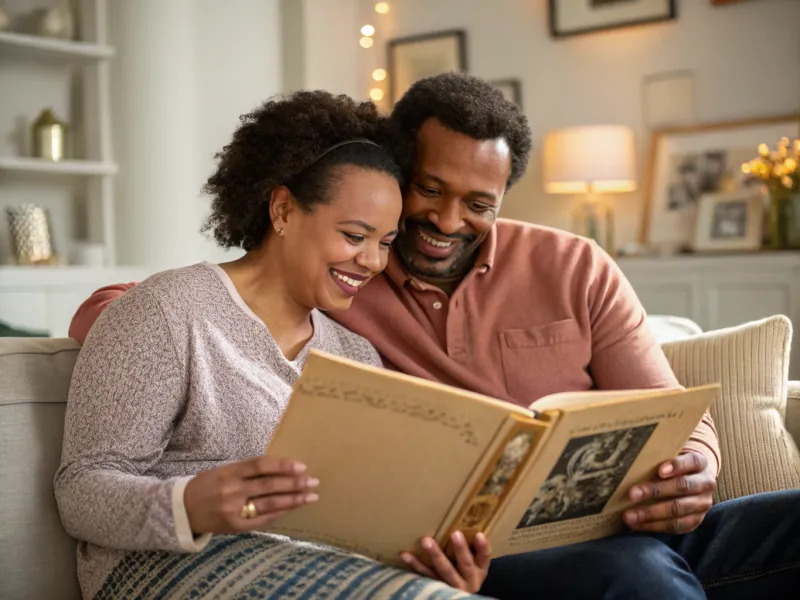
The memories and shared history that couples build over years can act as a glue, keeping them together even when love fades. These shared experiences create a unique bond that is hard to replicate with someone new.
The nostalgia of past adventures and milestones achieved together can evoke a sense of continuity and belonging. These memories serve as a reminder of the life they have built together.
This sense of shared history can be comforting, providing a reason to stay in the marriage even when the romantic aspect has diminished.
15. Fear of Regret

The fear of making the wrong decision and regretting it later can keep couples from divorcing. The potential ‘what if’ scenarios play heavily in the minds of those contemplating separation.
This concern about regretting the decision to leave can lead to hesitation. The idea of losing what they currently have, even if it’s not ideal, can be daunting.
This fear of future regret can act as a powerful deterrent, prompting partners to remain in a marriage that lacks romantic love.
16. Love for Extended Family

The love and bonds formed with extended family can be a reason to stay in a marriage. The relationships built with in-laws and relatives often become an integral part of a person’s life.
Divorcing could mean losing these connections, which can feel like losing a part of one’s support system. The sense of belonging within the extended family can be comforting.
This love and connection with family members can make the idea of leaving the marriage less appealing, even when romantic love has faded.
17. Social Status and Expectations

Social status and expectations can influence the decision to stay married. In certain circles, maintaining a married status can be closely tied to one’s social standing.
The fear of losing status or facing judgment from peers can deter couples from divorcing. Keeping up appearances becomes a priority, often at the expense of personal happiness.
This pressure to conform to societal expectations can lead to couples staying together to preserve their social identity, even when love is no longer present.
18. Fear of Losing Mutual Friends

The potential loss of mutual friends can be a deterrent to divorce. Couples often share a social circle, and separating could mean losing those friendships or creating awkwardness.
The fear of disrupting these social connections can make the idea of divorce unappealing. Maintaining these friendships often means maintaining the marriage.
This shared social life can act as a glue, keeping couples together even if romantic love has faded, valuing friendships over personal marital satisfaction.
19. Comfort in Routine

Routines and habits formed over years can provide comfort and stability. The predictability of daily life can be reassuring, even when love is no longer present.
For many, the thought of disrupting this routine is more daunting than staying in an unfulfilling marriage. The comfort found in habitual behaviors and shared rituals can be a powerful anchor.
This reliance on routine can make the idea of change feel overwhelming, keeping couples together despite the absence of romantic love.
20. Fear of Being Alone in Old Age
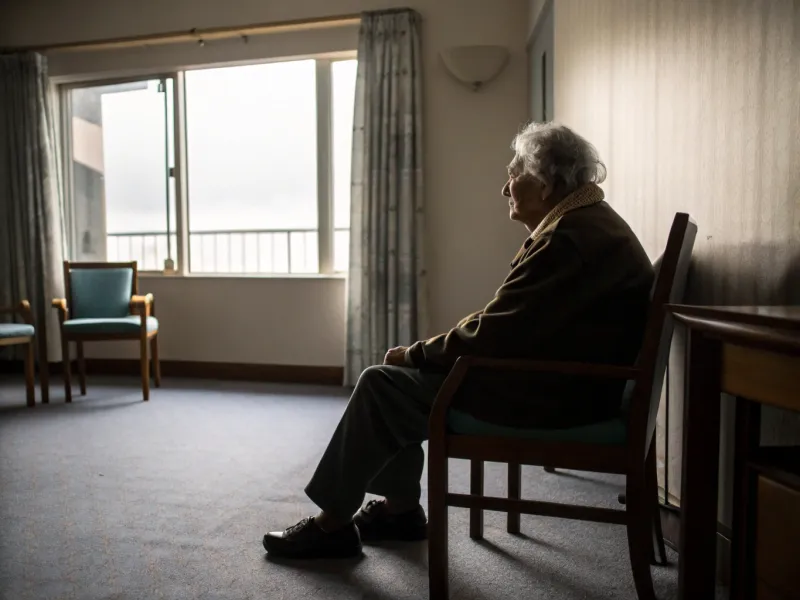
The prospect of facing old age alone can be intimidating, prompting some couples to stay together. The idea of having a companion in later years offers a sense of security and support.
For many, the fear of being alone as they age outweighs the dissatisfaction of staying in a loveless marriage. The thought of sharing life’s final stages with someone familiar can be comforting.
This fear of solitude in old age can act as a deterrent to divorce, keeping couples together even when romantic love has faded.
21. Impact on Career

The impact of divorce on a person’s career can be a significant concern. The stress and emotional toll of separation can affect job performance and professional relationships.
For some, maintaining a stable personal life is crucial to their career success. The fear of personal turmoil spilling into the workplace can deter couples from divorcing.
This concern about career stability can lead to the decision to remain married, even when romantic love is no longer part of the equation.
22. Desire to Avoid Conflict

Avoiding conflict and confrontation can be a strong motivator to stay in a marriage. The fear of arguments and the emotional upheaval of divorce can make the status quo seem preferable.
For many, the thought of engaging in potentially contentious divorce proceedings is overwhelming. The desire for peace and a conflict-free life can outweigh the pursuit of personal happiness.
This avoidance of conflict can keep couples together, valuing harmony over romantic love.
23. Shared Responsibilities for Pets

Pets often become a part of the family, and their care can be a shared responsibility that keeps couples together. The thought of separating and deciding who keeps the pets can be distressing.
The bond over mutual care for animals creates a sense of unity and shared purpose. This connection, focused on the well-being of pets, can influence the decision to stay together.
This shared love for pets can act as a glue, maintaining the marriage even when human emotional ties have weakened.
24. Fear of Legal Battles

The fear of lengthy and adversarial legal battles can deter couples from divorcing. The prospect of going through a contentious divorce process can be daunting.
Many prefer to avoid the stress, cost, and emotional toll of court proceedings. This fear of legal battles can make staying in the marriage seem like the easier option.
For some, the desire to avoid legal conflict keeps them in a marriage, even when romantic love has diminished.
25. Inertia and Habit

Inertia and the force of habit can be powerful reasons to stay in a marriage. The familiarity of the current situation can make change seem unnecessary or too challenging.
For some, the effort required to initiate a divorce feels too great compared to the comfort of staying put. The daily routines and shared life can create a strong sense of inertia.
This resistance to change can keep couples together, valuing stability over the pursuit of romantic love.
26. Belief in Commitment

A strong belief in the commitment they made can keep couples together. The vows exchanged during marriage ceremonies often hold deep personal significance.
For many, this belief in honoring commitments outweighs the lack of romantic love. The promise made to stay together ‘for better or worse’ becomes a guiding principle.
This enduring belief in commitment can be a powerful motivator to remain in a marriage, valuing the promise over personal satisfaction.
27. Mutual Respect

Mutual respect can sustain a marriage even when love has faded. The ability to value and appreciate each other’s perspectives and qualities can create a foundation for the relationship.
This respect fosters a sense of partnership and collaboration, making the marriage feel worthwhile. Even in the absence of romantic love, mutual respect can maintain a positive dynamic.
This appreciation for one another’s character and contributions can keep couples together, placing value on respect over romance.
28. Emotional Support During Tough Times

The emotional support offered during challenging times can be a compelling reason to stay together. The ability to rely on each other for comfort and understanding creates a special bond.
This support extends beyond romantic love, highlighting a deeper level of connection. Facing life’s difficulties with a partner can make the prospect of separation less appealing.
This shared resilience and care can sustain a relationship, valuing emotional support over the pursuit of romantic love.
29. Lack of Better Alternatives

The belief that there are no better alternatives can keep couples in a marriage. The grass isn’t always greener on the other side, and the fear of finding something worse can be strong.
This uncertainty about what lies beyond the current relationship can deter individuals from seeking change. The comfort of the known, even if unsatisfactory, can be more appealing than the risk of the unknown.
This perception of limited options can keep couples together, valuing stability over romantic love.
30. Convenience and Ease

The convenience and ease that comes from shared logistics can be a reason to stay together. Sharing responsibilities like finances, household chores, and parenting can simplify life.
This logistical partnership can make the idea of separating seem unnecessarily complex. The smooth operation of daily life together can be hard to give up.
This convenience can keep couples together, valuing practicality over romantic love.
31. Fear of Emotional Pain

The fear of emotional pain and heartbreak can deter couples from divorcing. The thought of experiencing deep emotional turmoil can be frightening.
The idea of enduring the emotional pain of separation can make staying in a marriage, even without love, more appealing. The desire to avoid this hurt can be a strong motivator.
This fear of emotional suffering can keep partners together, valuing emotional safety over the pursuit of romantic love.
32. Mutual Growth Through Challenges

Marriages often face challenges that, surprisingly, become a source of mutual growth. It might sound ironic, but overcoming hardships can create a unique bond. The process of tackling life’s unexpected hurdles together can forge a connection that’s stronger than love itself.
Consider this: a couple might stay together because they see value in the growth and learning that challenges bring. These shared experiences, though difficult, leave an indelible mark on their relationship.
Facing adversities together can lead to a profound understanding and appreciation of each other, turning trials into transformative personal growth opportunities.
33. Shared Passion Projects
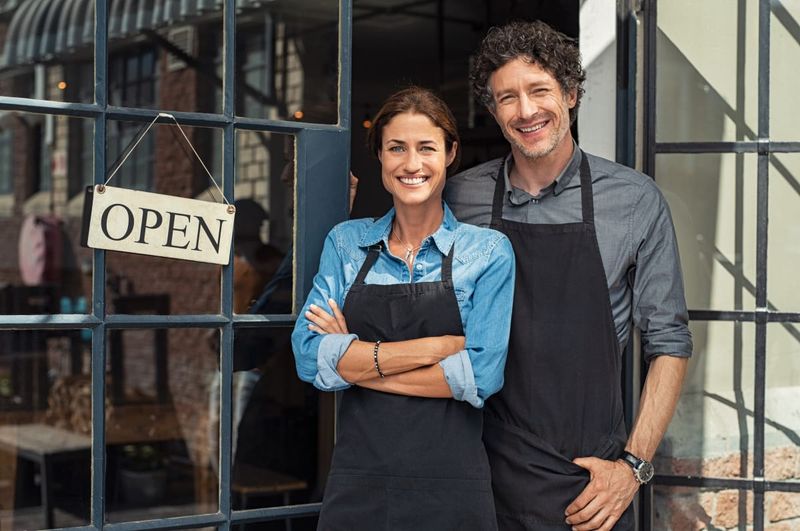
A shared passion can serve as a powerful glue in a marriage. Imagine finding common joy in creating art, gardening, or renovating a vintage car. These projects aren’t just hobbies; they are shared journeys that keep couples connected.
Engaging in passion projects together provides a sense of purpose beyond romantic love. These activities foster collaboration and companionship, offering a fulfilling avenue to connect.
Such shared interests can breathe new life into a relationship, creating a bond of creativity and enthusiasm that transcends ordinary daily interactions.







